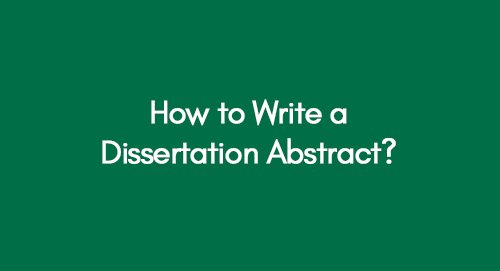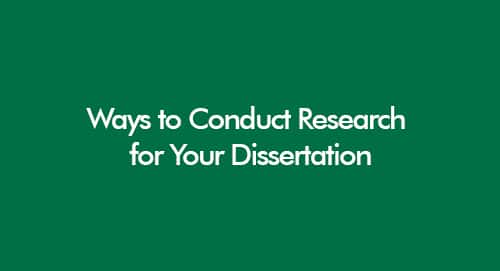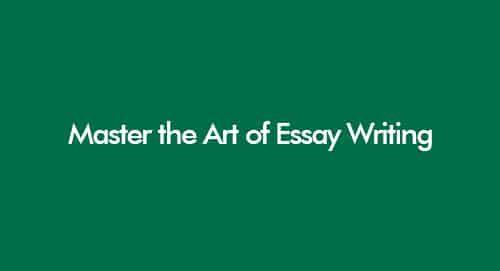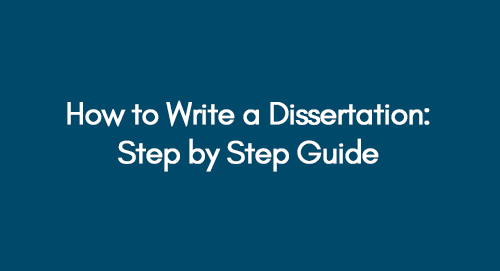
How to Write a Dissertation? | Comprehensive Step-by-Step Guide
July 18, 2022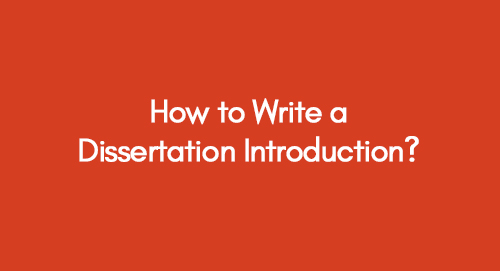
How to Write a Dissertation Introduction?| Main Facets
July 21, 2022An effective dissertation abstract usually includes the following points:
- Why is the research important (what is it about)?
- How you conducted your research (the methodology)
- The key findings of your research (what you learned)
What is the Purpose of an Abstract?
Any paper you submit to an academic journal, thesis, dissertation, or research paper must begin with an abstract. Abstracts are generally written last in dissertations, even though they appear at the beginning. The time for summarizing all the evidence and data, interpreting every finding, providing enough theory to support your interpretations, and answering your research questions will come after you have compiled everything. Abstracts are generally between 200 and 300 words long.
There should never be any excerpts from the original text of your paper in your abstract. The act of copying and pasting chunks of your own research into an abstract is also unethical in research contexts.
A research abstract should provide an overview of the research objective, methods of research, results, findings, major interpretations, conclusions, and implications of the study. The abstract of your research should provide readers with all the information they need to understand your research.
Also Read: Which chapter comes first in a dissertation, method or methodology?
What Are The Steps of Writing a Dissertation?
Depending on how well your dissertation abstract is written, it can make or break your reader's impression. The abstract of your dissertation can motivate or discourage readers.
You should write an abstract for your dissertation that is conspicuous, meaningful, interesting, and informative as well. You should include a summary of the research from each chapter of your dissertation in order to provide a brief overview of the work.
Step 1: Introduction
Your research should begin by clearly defining its purpose. How does the research address a practical or theoretical problem, or what was the aim of your research?
If you want to include some relevant social or academic context, do so briefly, but do not go into much detail. Give a brief definition of specialized terms used in your abstract that will be unfamiliar to the average academic reader.
Define your research objective once you have identified the problem. To describe exactly what you intend to do, use verbs such as "test," "investigate," "analyze," and/or "evaluate."
There is no need to refer to the future in this part of the abstract, as the research has already been conducted.
Step 2: Methods
The next step is to describe the research methods you used to answer your question. One or two sentences should be sufficient to describe what you did. Due to its reference to completed actions, it is typically written in the past simple tense.
Describe the approach and procedures you used without evaluating the validity or obstacles-the aim is not to provide a breakdown of the methodology's strengths and weaknesses.
Step 3: Results
The next step is to summarize the main findings of the research. You may use the present or past simple tense for this part of the abstract.
There may not be enough space here to include all the results of your research, depending on the length and complexity of your study. The reader will be able to understand your conclusions if you highlight only the most important findings.
Step 4: Discussion
Your discussion should be a response to the question or problem you addressed in your research. In order for your research to be successful, your reader must understand clearly what your research proves or argues. It is customary to write discussions in the present simple tense.
In the abstract, you should mention any limitations of your study (such as the size of your sample or your methods). Readers can then assess your research's credibility and generalizability accurately.
Your discussion might include recommendations for implementing your solution if you were trying to solve a practical issue. Make brief suggestions for future research if relevant.
Step 5: Conclusion
Answering the so what question is the purpose of the conclusion. Regardless of your major, you should explain to your reader what your findings mean from a broader perspective, regardless of whether you are studying law, engineering, nursing, history, or a humanities major.
Provide an overview of the impact your research has had on the field in which you studied and on the world in general. Consider how your findings will impact future research. Indicate whether your findings support existing research.
Example of An Abstract
This paper examines how silent movies were utilized as a mode of sharing experiences during the early twentieth century in the US. Since immigration rates were high at this time, a high percentage of citizens were non-English speakers. In addition to being excluded from public entertainment and discourse (newspapers, theaters, radio), these immigrants faced many economic and social obstacles.
Silent films were inexpensive and inclusive entertainment sources, as illustrated by reviews, personal correspondence, and diaries. A key argument is that early cinema is accessible economically and as a representational medium. Despite language barriers, the actors' exaggerated gestures and the low admission price make these concerns apparent, allowing a diverse audience to understand the plots and actions easily.
Check Out: Dissertation Examples
FAQs About Dissertation Abstract
An abstract is a summary of your research. Abstracts should summarize your work’s main points and demonstrate its purpose. Usually, it is about one or two pages long (300-500 words). Your abstract should explain why your work is important.
Dissertation abstracts seem to be similar to executive summaries. Nevertheless, they are two separate things. Here is how they differ.
Executive summaries typically cover both the research and its findings, whereas abstracts mostly describe what the research will be about. The abstract of a dissertation or thesis, however, usually summarizes the full work and provides a summary of both.

















